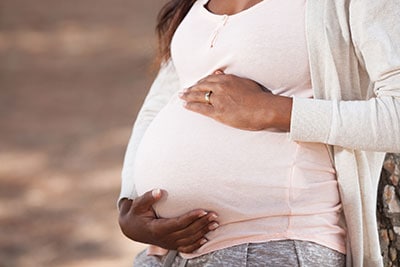Τα εμβόλια
είναι ένας αποτελεσματικός τρόπος προστασίας από σοβαρές και ενδεχομένως
απειλητικές για τη ζωή ασθένειες. Γι’ αυτό και τα προγράμματα εμβολιασμού σε όλο τον
κόσμο ξεκινούν όσο νωρίτερα είναι δυνατό, από τη βρεφική ηλικία ώστε να
θωρακίσουν τα μωρά απέναντι στα απειλητικά νοσήματα. Τι γίνεται όμως στο
διάστημα πριν από την γέννηση( και μετά )ενός βρέφους μέχρι τη στιγμή που θα ενισχυθεί το
ανοσοποιητικό του με τους εμβολιασμούς;
Είναι ασφαλή τα εμβόλια στην εγκυμοσύνη;
Τα εμβόλια στην
εγκυμοσύνη συστήνονται από διεθνείς επιστημονικές επιτροπές σε όλο τον κόσμο
αλλά και από την Εθνική Επιτροπή Εμβολιασμών. Στην Ελλάδα και Κύπρο ο
εμβολιασμός στην κύηση προτείνεται για συγκεκριμένα εμβόλια, τα οποία έχει αποδειχτεί
επιστημονικά ότι είναι ασφαλή. Τα εμβόλια αυτα χορηγούνται καλύτερα στο 2ο ή 3ο τρίμηνο της κύησης αν και μπορούν
να χορηγηθούν και απο το 1ο τρίμηνο , ειδικά της Γρίπης.
Εμβόλιο κοκκύτη στην εγκυμοσύνη
Ο κοκκύτης
μεταδίδεται στα βρέφη κυρίως απο τους ενήλικες, με πάνω απο το 50% των βρεφών
να αποκτούν την λοίμωξη απο το οικογενειακο περιβάλλον.Το γεγονός αυτό και η
βαρύτητα της λοίμωξης κατά την εγκυμοσύνη κατέστησε αναγκαία την λήψη του
αντικοκκυτικού εμβολίου κατα την κύηση και ίσως μάλιστα σε κάθε κύηση σύμφωνα
με πρόσφατες οδηγίες . Αυτό συμβάλλει και στην παθητική ανοσοποίηση των νεογνών τους
πρώτους δυό μήνες της ζωής τους μέσω της διαπλακουντιακής μεταφοράς αντισωμάτων.Για να
επιτευχθεί η παθητική ανοσοποίηση απαιτείται το εμβόλιο να χορηγηθεί σε χρόνο
μεγαλύτερο της μίας εβδομάδας απο τον τοκετό.
Ολες οι έγκυες
λαμβάνουν μία δόση εμβολίου Tdap (Τέτανος
–Διφθερίτιδα –Ακυτταρικό Κοκκύτη τύπου
ενήλικα), κατά προτίμηση από την 27η έως την 36η εβδομάδα κύησης ή τουλάχιστον
μια εβδομάδα προ του τοκετού.
Το εμβόλιο
συστήνεται επίσης σε ανεμβολίαστες λεχωΐδες, ανεξάρτητα από το διάστημα που
μεσολάβησε από προηγούμενο εμβολιασμό με Td ή Tdap.
Εμβόλιο γρίπης στην εγκυμοσύνη
Η γρίπη διαδράμει βαριά στην εγκυμοσύνη και με
αυξημένο κίνδυνο επιπλοκών. Ο εμβολιασμός μειώνει σημαντικά τπν κίνδυνο των επιπλοκών.Είναι
καλό ολες οι εγκυμονούσες να λαμβάνουν το
εμβόλιο της γρίπης πριν απο την εποχή έναρξης της γρίπης και ανεξάρτητα απο το
στάδιο της εγκυμοσύνης και συστήνεται
επίσης η χορήγηση του στις λεχωϊδες και τις θηλάζουσες μητέρες.Εμβολιασμοί μετά τον τοκετό
Μπορεί να
χορηγηθεί οποιοδήποτε εμβόλιο που συνιστάται για τον γενικό πληθυσμό.
Ιδιαίτερη
μέριμνα πρέπει να ληφθεί ώστε σε ανεμβολίαστες μητέρες να χορηγηθούν άμεσα τα εμβόλια MMR (Ιλαρά
–Ερυθρά –Παρωτίτδα )και της Ανεμοβλογιάς.
Vaccines During and After Pregnancy
A pregnant woman should get vaccinated against whooping cough and flu during each pregnancy to protect herself and her baby, with immunity for the first few months of life.
Protect mom and baby with vaccines
Did you know a baby gets disease immunity (protection) from mom during pregnancy? This immunity can protect baby from some diseases during the first few months of life, but immunity decreases over time.
Get a whooping cough vaccine and a flu shot during each pregnancy
Moms, get a whooping cough vaccine (also called Tdap) and a flu shot during each pregnancy. Use our Adult Vaccine Self-Assessment Tool to get a customized printout of recommended vaccines to take to the next medical appointment.Whooping cough
Whooping cough, known as pertussis, can be serious for anyone, but for a newborn, it can be life-threatening.- About 7 in 10 deaths from whooping cough are among babies younger than 2 months old. These babies are too young to be protected by their own vaccination. The younger the baby is when they gets whooping cough, the more likely they will need to be treated in a hospital.
- It may be hard to know if a baby has whooping cough because many babies with this disease don’t cough at all. Instead, it can cause them to stop breathing and turn blue.
Flu
Pregnant women are more likely to have severe illness from flu, possibly due to changes in immune, heart, and lung functions during pregnancy.Get a flu shot during pregnancy during flu season—it’s the best way for a pregnant woman to protect against the flu and protect the baby for several months after birth from flu-related complications. Get a flu shot anytime during each pregnancy.
CDC recommends getting a flu vaccine by the end of October
despite flu seasons varying in their timing from season to season. This
timing helps protect a pregnant woman before flu activity begins to
increase.
Other vaccines
Some women may need other vaccines before, during, or after they become pregnant. For example, if a pregnant woman works in a lab or is traveling to a country where she may be exposed to meningococcal disease, her doctor or healthcare professional may recommend meningococcal vaccination.- Hepatitis B: A baby whose mother has hepatitis B is at highest risk for becoming infected with hepatitis B during delivery. Moms, talk to your healthcare professional about getting tested for hepatitis B and whether or not you should get vaccinated.
- Hepatitis A: For pregnant women who have a history of chronic liver disease, doctors or healthcare professionals may recommend the hepatitis A vaccine.
- Vaccines for travel: Pregnant women planning international travel should talk to their doctor or healthcare professional at least 4 to 6 weeks before their trip to discuss any special precautions or necessary vaccines. See Traveler’s Health for additional tips on how to prepare to travel safely.
Vaccines after childbirth
Healthcare professionals may recommend some women receive certain vaccines right after giving birth. Postpartum vaccination will help protect moms from getting sick, and they will pass some antibodies to the baby through breastmilk if they are able to breastfeed. Vaccination after pregnancy is especially important if moms did not receive certain vaccines before or during pregnancy.However, moms will not get protective antibodies immediately if they wait to get vaccinated until after birth. This is because it takes about 2 weeks after getting vaccinated before the body develops antibodies.
The baby will also start to get his or her own vaccines to protect against serious childhood diseases.
SOURCES : CDC, AAP , I. KAVALIOTIS , ΕΠΕ κλπ



Δεν υπάρχουν σχόλια:
Δημοσίευση σχολίου